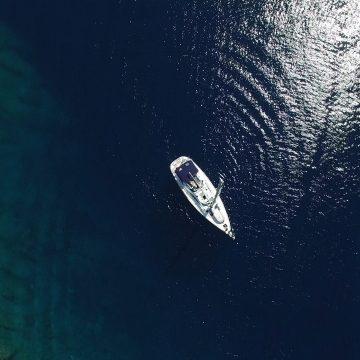Focus countries: Global, Angola, Brazil, Kenya Moldova, Mozambique
Addressing corruption and kleptocratic practices has grown in importance over the past decade, with jurisdictions across the globe introducing new legislative and policy tools designed to strengthen their response to the inflows of corrupt wealth. Civil society has often been at the forefront of this, developing research and policy that cuts across national divide in an effort to identify best practices in not only combatting kleptocracy, but also in ensuring that efforts are carried out in a manner that contributes to broader democratic goals of transparency, accountability and participation.
Despite this, illicit wealth continues to flow within countries and across national borders. Emblematic of this have been the introduction of sanctions against Russian officials and businesspersons following the 2022 invasion of Ukraine, that served not only to respond to Russian aggression, but highlighted the extent to which wealth suspected of having been acquired through corruption is hidden overseas in countries with supposedly robust anti-corruption mechanisms.

With this project, we aim to build on these achievements through:
- supporting strong cross-country and cross-continental partnerships between civil society engaged in combatting kleptocracy
- developing collective principles and policies to strengthen global, regional and national reform, and
- capitalising on our sanctions work and current impetus around sanctions to strengthen their utility as a long-term tool against kleptocracy.
Project aims
Our theory of change is that in order to secure more effective, transparent and accountable asset recovery, civil society needs to better understand the available tools to address kleptocracy and asset recovery and when and how they are best applied. Moreover, civil society from key countries with ongoing cases need to be supported and connected to become strong and credible voices in asset recovery, to work sustainably and to harness cases for transformative democratic change.
With this project, we aim to:
- Strengthen transnational civil society collaboration on asset recovery and build a more coherent voice amongst civil society at the global, regional and national levels
- Increase the application and enforcement of international sanctions as a tool to combat kleptocracy and advance anti-corruption investigations and asset recovery based off these sanctions.
Activity stream 1: Transnational civil society partnerships against kleptocracy
Activities under this stream focus on building on the results of the Global South Forum, held in 2022, to strengthen global, regional and national dialogue on urgent areas of reform for transparent, accountable and participatory responses to kleptocracy and to enhance civil society cooperation in this field.
The Global South Forum highlighted the need for closer cross-border CSO cooperation, identified a number of policy areas where CSOs can cooperate to develop standards and called for specific action on particular issues. Our plans for this area reflect this and aim to strengthen the network and take on board the outcomes of the Forum through:
- supporting coordinated CSO-CSO cooperation,
- developing CSO principles on three priority areas of sanctions, returned asset management and the role of victims in asset recovery, and around the implementation of the African Union’s Common African Position on Asset Recovery (CAPAR), and
- facilitating further opportunities for joint discussion between civil society.
Activity stream 2: Sanctions as an anti-kleptocratic tool
Our work under this stream aims to capitalise on the momentum our previous sanctions work has brought, to further engage with:
- the triggering of anti-corruption investigations following the imposition of sanctions in key jurisdictions
- the enforcement frameworks for sanctions in key jurisdictions, and
- support for country of origin CSOs to better use sanctions to address kleptocracy.
Project timeframe
May 2023 – April 2025
Supported by:

